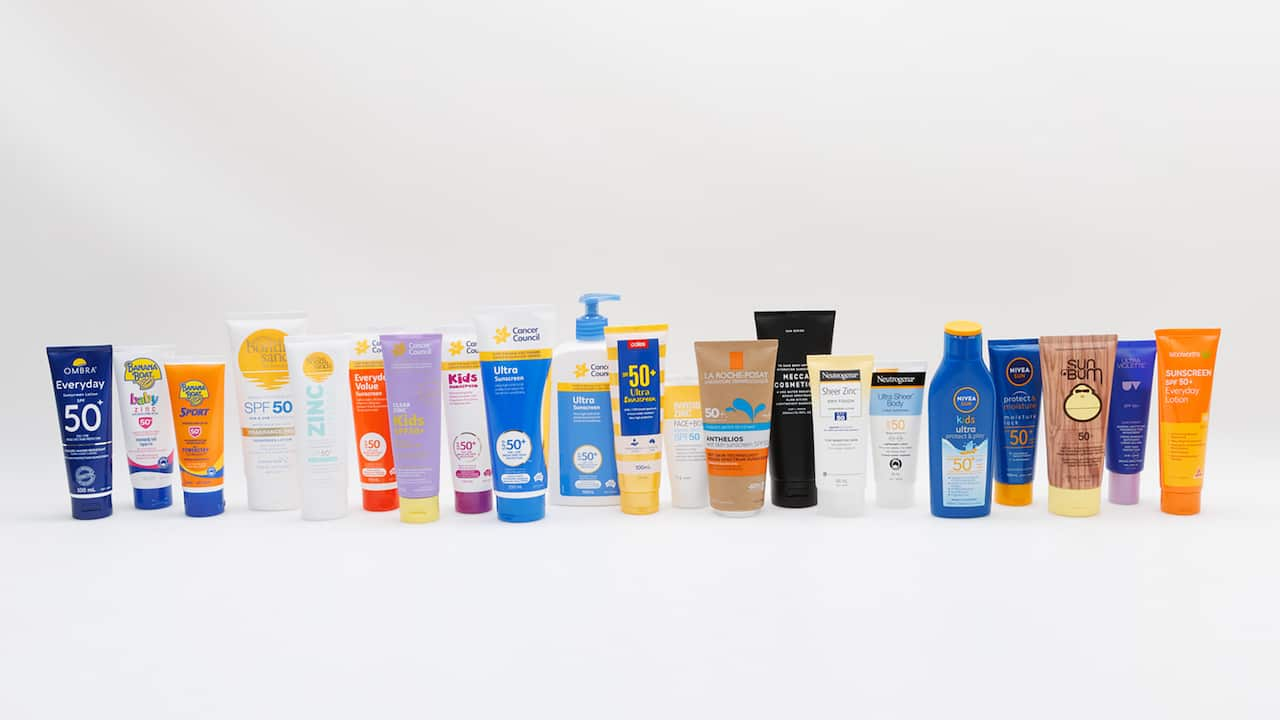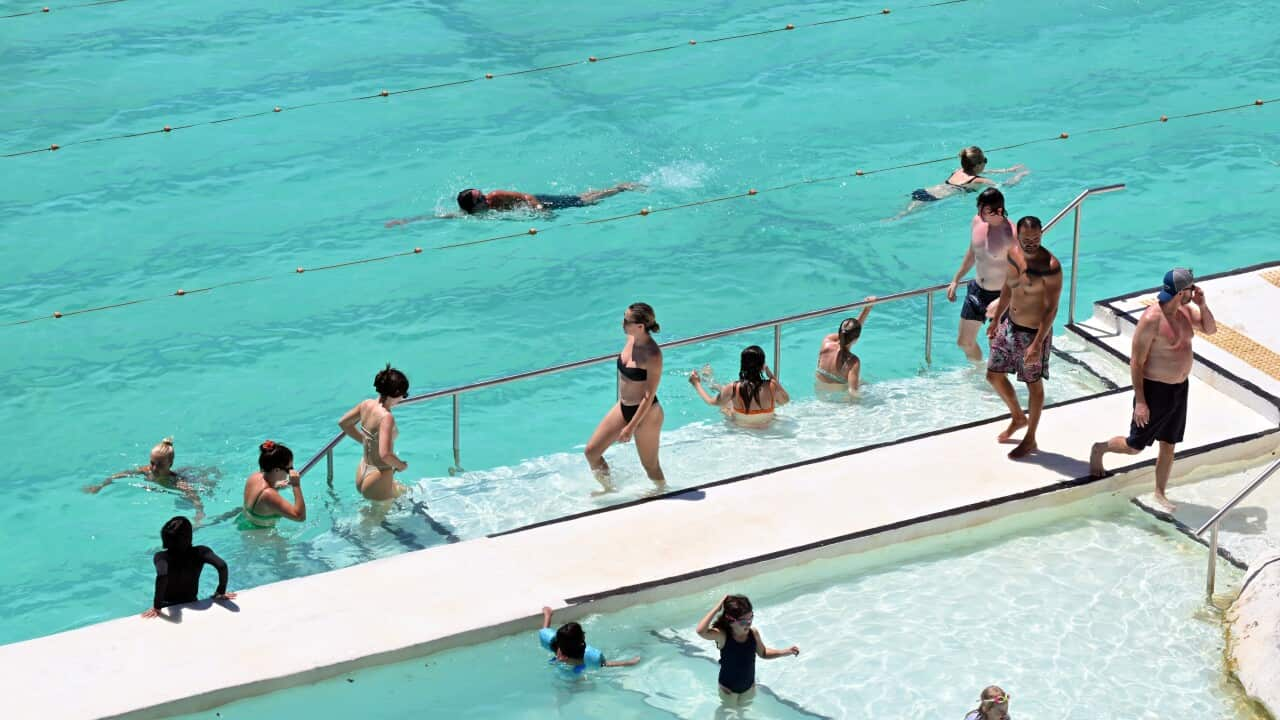Australians headed to the beach this week have been warned that two more sunscreens have been voluntarily recalled, just the latest development in the ongoing SPF controversy.
The two products recalled by the Therapeutic Goods Administration (TGA) are:
- Outside Beauty & Skincare SPF 50+ Mineral Primer
- Salus SPF 50+ Daily Facial Sunscreen Broad Spectrum
The two sunscreens were first tabled by the TGA earlier in the month, along with a number of other sunscreens unlikely to have an SPF (Sun Protection Factor) greater than 21, despite being advertised as 50+.
For some products, the SPF rating could be as low as 4, according to a statement released on the TGA website. All were using the same base formulation.
The news comes as eastern Australia braces for a heatwave, with the Bureau of Meteorology predicting that temperatures in parts of Queensland, NSW and South Australia could be up to 16C higher than average over the coming days.

Have you bought an affected batch?
Since an investigation by consumer advocacy group Choice in June, eight sunscreens have been recalled. A further 13 sunscreens are either under review by the TGA, or have voluntarily paused supply.
The latest product recall refers to specific batches of sunscreens. For Outside Beauty's Mineral Primer, these are:
- Batch A1902, expiring October 2026
- Batch 2586, expiring February 2028
The batch of Salus SPF 50+ affected is A1770, expiring July 2026.
People who have bought these batches have been asked to stop using the products, according to statements released by both companies on their websites. Customers are eligible for a refund.
Both Salus and Outside Beauty said in statements on their websites that no other products have been affected by the recall.
What is the base formulation?
All sunscreens identified by the TGA were using the same base formulation as Ultra Violette Lean Screen SPF 50+. It was removed from shelves in August after the Choice investigation found the SPF rating could be as low as four.
Brands bought the base formulation from manufacturer Wild Child Laboratories. As with many sunscreens, companies then add different excipients, or non-active ingredients, such as fragrances or colour tints.
The TGA also expressed concerns about UK-based testing company Princeton Consumer Research (PCR Corp), which it says a number of brands used.
The TGA said it had written to PCR and has not received a response.
Near-record temperatures
The latest SPF scandal comes as Australia is experiencing an unseasonably warm October, with hot north-westerly winds bringing heat towards the east coast.
On Monday, the BoM's severe weather update said temperatures in central Australia looked more like summer than your typical October, and it could lead to record-breaking heat in Western and Southern Queensland, north-eastern South Australia, and northern and north-western NSW through the week.
By Wednesday, temperatures in Sydney could hit 38C, while the western suburbs could reach as high as 40C. The BoM warned that this will bring an "extreme" fire danger for Sydney, the Hunter and the Illawarra.
For the latest from SBS News, download our app and subscribe to our newsletter.

